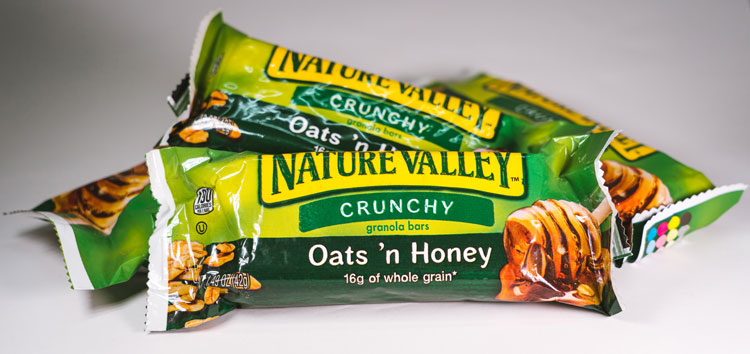Sustainable food brands reap benefits
- Like
- Digg
- Del
- Tumblr
- VKontakte
- Buffer
- Love This
- Odnoklassniki
- Meneame
- Blogger
- Amazon
- Yahoo Mail
- Gmail
- AOL
- Newsvine
- HackerNews
- Evernote
- MySpace
- Mail.ru
- Viadeo
- Line
- Comments
- Yummly
- SMS
- Viber
- Telegram
- Subscribe
- Skype
- Facebook Messenger
- Kakao
- LiveJournal
- Yammer
- Edgar
- Fintel
- Mix
- Instapaper
- Copy Link
Posted: 28 April 2021 | Lindsay Parry | No comments yet
Consumers are willing to pay more for genuinely sustainable food brands, explains Lindsay Parry from Nepa UK, as she shares important consumer insights…


There is a lot that the food industry can do (and is doing) in terms of sustainability. Many brands are already committed to reducing packaging, recycling, sourcing sustainable ingredients, minimising the impact of manufacturing, using clean energy – and more. We’re not short of examples. But how is this activity reflecting on food brands, if at all?
Here at Nepa, we interviewed 970 UK consumers about 18 brands in the food industry, in an attempt to understand what impact sustainability has on each brand, and what they need to do to maximise the value of their efforts.
Ethical reasons aside, will sustainability increase your brand value? Will consumers be willing to pay more for your product? Well, if you are looking for a return, you may be in luck. In our study we used our Willingness to Pay (WTP) measure to evaluate the maximum price a consumer is willing to pay for a product or service. Using this analysis, our research found that food brands that are perceived as sustainable will see an average increase of 33 percent in WTP – meaning that people are willing to pay more for sustainable brands. This correlation between being perceived as sustainable and a high willingness to pay shows that caring for our planet is worth it – on many levels.


Consumers perceive the Nature Valley brand to be the most sustainable
Many brands across industries show positive correlation between perceived sustainability and a high WTP, but food brands have an advantage. The food industry is seen as the most successful industry in terms of driving a sustainable society. It is perceived as more sustainable as a whole despite some of the individual brands within it. This means that these brands automatically gain a sustainability label, which reflects positively on their reputation. But this comes with a price. Brands need to live up to consumers’ already high expectations, delivering and communicating their commitment to sustainability in order to benefit from the WTP increase.
Sustainable communication is key
Our research shows that brands need to create an emotional connection with people. On top of their concrete efforts, they need to approach consumers using a human tone of voice in their communications. Sharing genuinely honest intentions is more important than talking about actual achievements in a self-righteous manner. The expert position is not enough when talking about sustainability because it fails to create a strong emotional connection with people. Food brands need to be perceived as inclusive and down to earth.
We discovered that – among the brands tested – Nature Valley is the one that is perceived as most sustainable. Compared to the average brand in the industry, it stands out for establishing emotional connections and being perceived as introverted and altruistic.
Two thirds of consumers believe that companies must use sustainable energy sources to be credible
As well as their tone of voice, when framing their sustainability efforts brands should bear in mind which areas are priorities for consumers. They must consider which issues – local and global – consumers believe companies must engage in, in order to credibly claim sustainability. The issues that consumers perceive as most relevant are classic “green” issues; 65 percent of people feel it’s important to adapt to a sustainable lifestyle. Two thirds of consumers believe that companies must use sustainable energy sources to be credible; and 59 percent expect brands to engage in the fight against climate change. This focus on the future of the planet is prioritised over socio-economic issues such as health and wellbeing, equal rights and decent working conditions.
Although food brands benefit from the generally positive perception of the industry as a whole, they can’t solely rely on that. To earn the authentic certificate of sustainability they must have a good understanding of what consumers really value, and what they’re willing to pay more for.
Lindsay Parry, Managing Director at Nepa UK
With over 25 years international experience in retail, FMCG and data analytics, Lindsay is an expert in shopper and retailer insights. Having been integral in the launch and success of Tesco Clubcard, Lindsay’s focus is on delivering insights that matter most to you consumers, your brand and your bottom line. Specialising in Shopper Insights, Brand Health Optimisation, Omnichannel and Path to Purchase strategy, she has worked with clients including Nestle Purina, PepsiCo, Unilever, Nomad Foods, Cadburys, Hersheys, Walmart, Tesco, Reckitt Benkiser, GSK and Coca-Cola. She joined Nepa four years ago to head up its UK operations.








